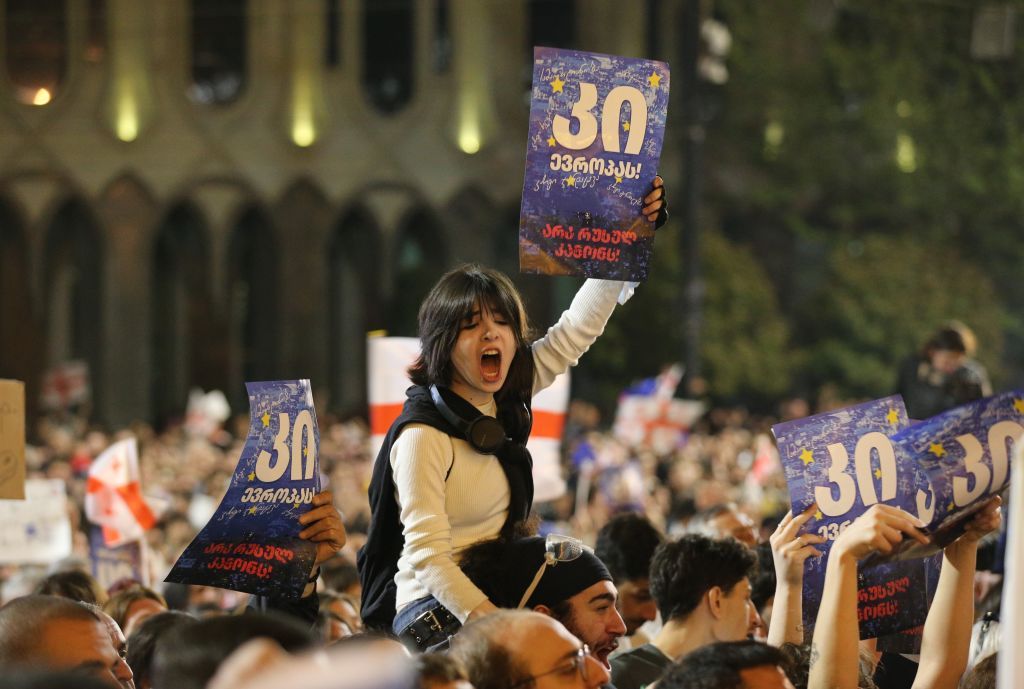US, EU, UN criticize Georgia's foreign agents bill

U.S., EU, and U.N. officials denounced on May 2 Tbilisi's efforts to pass a controversial foreign agents bill amid the ongoing protests in Georgia.
The legislation, scheduled for its third and final reading on May 17, would require organizations that receive foreign funding to be labeled as "foreign agents." It mirrors repressive Russian laws used to crack down on Kremlin regime critics and is popularly referred to in Georgia as the "Russian law."
The planned legislation has led to growing tensions between Tbilisi and Western countries, prompting fears of democratic backsliding and the pro-Kremlin direction of the Georgian government.
"We are deeply concerned about this legislation - what it could do in terms of stifling dissent and free speech," U.S. national security spokesperson John Kirby said during a press briefing.
The attempts to pass the law have sparked mass demonstrations in the country, with the police reportedly stepping against the protesters with tear gas, rubber bullets, and water cannons.
U.S. Ambassador to Georgia Robin Dunnigan said that Tbilisi's steps have "moved the country away from its Euro-Atlantic future."
Dunnigan previously said that Georgian Prime Minister Irakli Kobakhidze was invited to visit the U.S. to discuss the two countries' partnership but the latter has rejected the offer.
"There are concerning developments in terms of legislation. The law ... as it stands is unacceptable and will create serious obstacles for the EU accession path," said Gert Jan Koopman, the director general of the European Commission's enlargement directorate, at a Tbilisi press conference.
Several other Western countries, including the U.K., Italy, and Germany, have criticized the bill.
U.N. rights chief Volker Turk also joined the calls for Georgia to halt the legislation.
"I urge Georgian authorities to withdraw this draft law, and to engage in dialogue, including with civil society and media organizations," Turk said.
"Labeling NGOs and media outlets receiving foreign funding as 'organizations acting in the interest of a foreign power' poses serious threats to the rights to freedom of expression and association."














